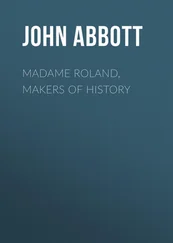John Abbott - Hortense. Makers of History Series
Здесь есть возможность читать онлайн «John Abbott - Hortense. Makers of History Series» — ознакомительный отрывок электронной книги совершенно бесплатно, а после прочтения отрывка купить полную версию. В некоторых случаях можно слушать аудио, скачать через торрент в формате fb2 и присутствует краткое содержание. Жанр: Биографии и Мемуары, История, foreign_edu, foreign_antique, foreign_prose, на английском языке. Описание произведения, (предисловие) а так же отзывы посетителей доступны на портале библиотеки ЛибКат.
- Название:Hortense. Makers of History Series
- Автор:
- Жанр:
- Год:неизвестен
- ISBN:нет данных
- Рейтинг книги:4 / 5. Голосов: 1
-
Избранное:Добавить в избранное
- Отзывы:
-
Ваша оценка:
- 80
- 1
- 2
- 3
- 4
- 5
Hortense. Makers of History Series: краткое содержание, описание и аннотация
Предлагаем к чтению аннотацию, описание, краткое содержание или предисловие (зависит от того, что написал сам автор книги «Hortense. Makers of History Series»). Если вы не нашли необходимую информацию о книге — напишите в комментариях, мы постараемся отыскать её.
Hortense. Makers of History Series — читать онлайн ознакомительный отрывок
Ниже представлен текст книги, разбитый по страницам. Система сохранения места последней прочитанной страницы, позволяет с удобством читать онлайн бесплатно книгу «Hortense. Makers of History Series», без необходимости каждый раз заново искать на чём Вы остановились. Поставьте закладку, и сможете в любой момент перейти на страницу, на которой закончили чтение.
Интервал:
Закладка:
Josephine's anguish.
When Josephine reached Lyons, a distance of two hundred and forty-two miles from Paris, she learned, to her consternation, that Napoleon had left the city several hours before her arrival, and that they had passed each other by different roads. Her anguish was dreadful. For many months she had not received a line from her husband, as all communication had been intercepted by the British cruisers. She knew that her enemies would be busy in poisoning the mind of her husband against her. She had traversed the weary leagues of her journey without a moment's intermission, and now, faint, exhausted, and despairing, she was to retrace her steps, to reach Paris only many hours after Napoleon would have arrived there. Probably in all France there was not then a more unhappy woman than Josephine.
Jealousy of Napoleon.
The mystery of human love and jealousy no philosophy can explain. Secret wretchedness was gnawing at the heart of Napoleon. He loved Josephine with intensest passion, and all the pride of his nature was roused by the conviction that she had trifled with him. With these conflicting emotions rending his soul, he entered Paris and drove to his dwelling. Josephine was not there. Even Josephine had bitter enemies, as all who are in power ever must have. These enemies took advantage of her absence to fan the flames of that jealousy which Napoleon could not conceal. It was represented to him that Josephine had fled from her home, afraid to meet the anger of her injured husband. As he paced the floor in anguish, which led him to forget all his achievements in the past and all his hopes for the future, an enemy maliciously remarked,
"Josephine will soon appear before you with all her arts of fascination. She will explain matters, you will forgive all, and tranquillity will be restored."
Napoleon, striding nervously up and down the floor, replied with pallid cheek and trembling lip,
"Never! never! Were I not sure of my resolution, I would tear out this heart and cast it into the fire."
Eugene had returned with Napoleon. He loved his mother to adoration. Anxiously he sat at the window watching, hour after hour, for her arrival. At midnight on the 19th the rattle of her carriage-wheels was heard, as she entered the court-yard of their dwelling in the Rue Chantereine. Eugene rushed to his mother's arms. Napoleon had ever been the most courteous of husbands. Whenever Josephine returned, even from an ordinary morning drive, he would leave any engagements to greet her as she alighted from her carriage. But now, after an absence of eighteen months, he remained sternly in his chamber, the victim of almost unearthly misery.
The meeting in Paris.
The cruel repulse.
In a state of terrible agitation, with limbs tottering and heart throbbing, Josephine, assisted by Eugene and accompanied by Hortense, ascended the stairs to the parlor where she had so often received the caresses of her husband. She opened the door. Napoleon stood before her, pale, motionless as a marble statue. Without one kind word of greeting he said sternly, in words which pierced her heart,
"Madame, it is my wish that you retire immediately to Malmaison."
The meek and loving Josephine uttered not a word. She would have fallen senseless to the floor, had she not been caught in the arms of her son. It was midnight. For a week she had lived in her carriage almost without sleep. She was in a state of utter exhaustion, both of body and of mind. It was twelve miles to Malmaison. Napoleon had no idea that she would leave the house until the morning. Much to his surprise, he soon heard the carriage in the yard, and Josephine, accompanied by Eugene and Hortense, descending the stairs. The naturally kind heart of Napoleon could not assent to such cruelty. Immediately going down into the yard, though his pride would not permit him to speak to Josephine, he addressed Eugene, and requested them all to return for refreshment and repose.
In silent submission, Eugene and Hortense conducted their mother to her apartment, where she threw herself upon her couch in abject misery. In equally sleepless woe, Napoleon retired to his cabinet. Two days of wretchedness passed away. On the third, the love for Josephine, which still reigned in the heart of Napoleon, so far triumphed that he entered her apartment. Josephine was seated at a toilette-table, with her head bowed, and her eyes buried in her handkerchief. The table was covered with the letters which she had received from Napoleon, and which she had evidently been perusing. Hortense, the victim of grief and despair, was standing in the alcove of a window.
The reconciliation.
Apparently Josephine did not hear the approaching footsteps of her husband. He advanced softly to her chair, placed his hand upon it, and said, in tones almost of wonted kindness, "Josephine." She started at the sound of that well-known and dearly-loved voice, and turning towards him her swollen and flooded eyes, responded, "My dear." The words of tenderness, the loving voice, brought back with resistless rush the memory of the past. Napoleon was vanquished. He extended his hand to Josephine. She rose, threw her arms around his neck, rested her throbbing, aching head upon his bosom, and wept in convulsions of anguish. A long explanation ensued. Napoleon again pressed Josephine to his loving heart, satisfied, perfectly satisfied that he had deeply wronged her; that she had been the victim of base traducers. The reconciliation was perfect.
Napoleon First Consul.
Soon after this Napoleon overthrew the Directory, and established the Consulate. This was on the ninth of November, 1799, usually called 18th Brumaire. Napoleon was thirty years of age, and was now First Consul of France. After the wonderful achievements of this day of peril, during which Napoleon had not been able to send a single line to his wife, at four o'clock in the morning he alighted from his carriage at the door of his dwelling at the Rue Chantereine. Josephine, in a state of great anxiety, was watching at the window for his approach. She sprang to meet him. Napoleon encircled her in his arms, and briefly recapitulated the memorable scenes of the day. He assured her that since he had taken the oath of office, he had not allowed himself to speak to a single individual, for he wished the beloved voice of his Josephine might be the first to congratulate him upon his virtual accession to the Empire of France. Throwing himself upon a couch for a few moments of repose, he exclaimed gayly, "Good-night, my Josephine. To-morrow we sleep in the palace of the Luxembourg."
The Luxembourg.
This renowned palace, with its vast saloons, its galleries of art, its garden, is one of the most attractive of residences. Napoleon was now virtually the monarch of France. Josephine was a queen, Eugene and Hortense prince and princess. Strange must have been the emotions of Josephine and her children as, encompassed with regal splendor, they took up their residence in the palace. But a few years before, Josephine, in poverty, friendlessness, and intensest anguish of heart, had led her children by the hand through those halls to visit her imprisoned husband. From one of those apartments the husband and father had been led to his trial, and to the scaffold, and now this mother enters this palace virtually a queen, and her children have opening before them the very highest positions of earthly wealth and honor.
Chapter III.
Hortense and Duroc
Calumnies.
It is a very unamiable trait in human nature, that many persons are more eager to believe that which is bad in the character of others than that which is good. The same voice of calumny, which has so mercilessly assailed Josephine, has also traduced Hortense. It is painful to witness the readiness with which even now the vilest slanders, devoid of all evidence, can be heaped upon a noble and virtuous woman who is in her grave.
Читать дальшеИнтервал:
Закладка:
Похожие книги на «Hortense. Makers of History Series»
Представляем Вашему вниманию похожие книги на «Hortense. Makers of History Series» списком для выбора. Мы отобрали схожую по названию и смыслу литературу в надежде предоставить читателям больше вариантов отыскать новые, интересные, ещё непрочитанные произведения.
Обсуждение, отзывы о книге «Hortense. Makers of History Series» и просто собственные мнения читателей. Оставьте ваши комментарии, напишите, что Вы думаете о произведении, его смысле или главных героях. Укажите что конкретно понравилось, а что нет, и почему Вы так считаете.












